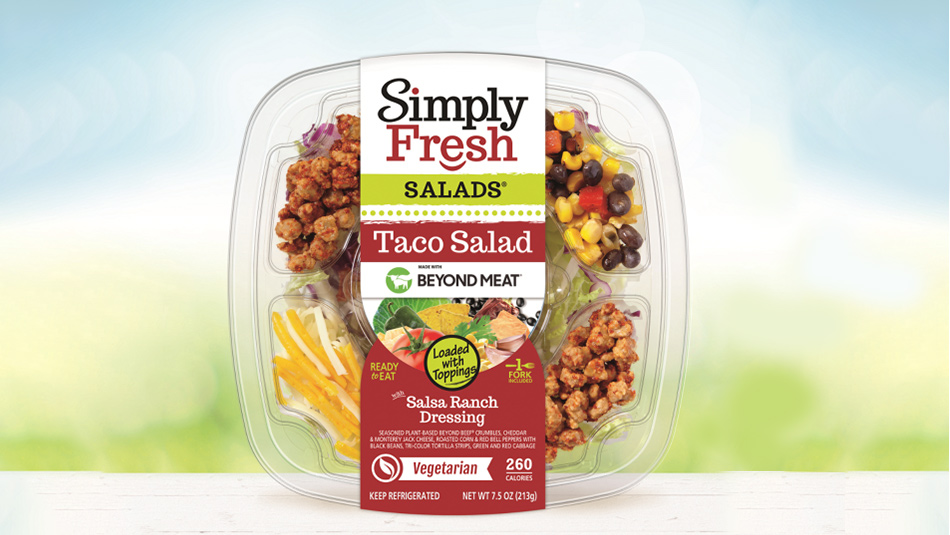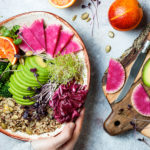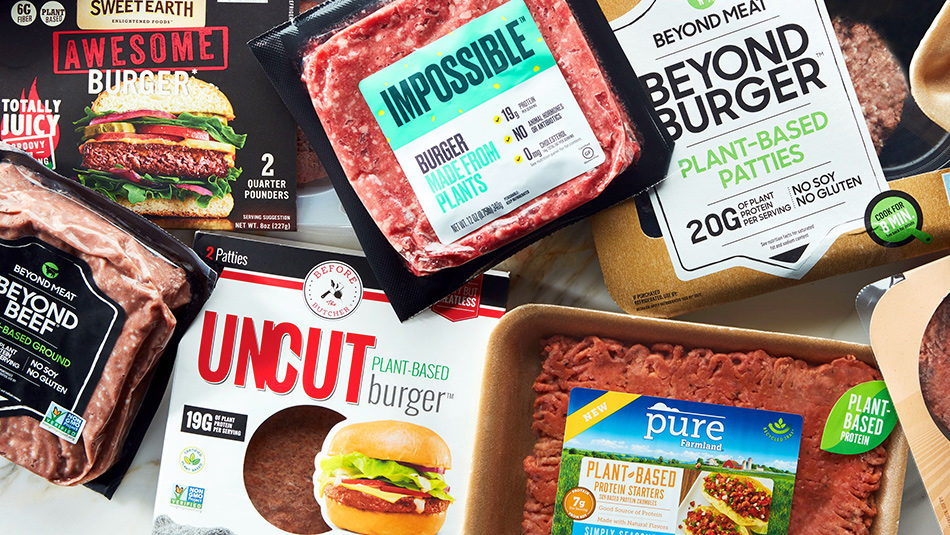
A Trend That Is Here To Stay: Plant-forward Food Consumption
The pandemic has caused many changes in consumer behavior, leading to discussion about how ephemeral those changes are, or alternatively if they are trends that have become ‘the new normal’. Will everyone be baking their own bread from now on, or once commuting hours come back, will that fall by the wayside? Or, will commuting hours never come back?
Here’s what makes sense to me: trends which were already happening, but were magnified by the pandemic, will continue, while those that came into being because of the pandemic are more likely to fade away.
In the food world, consumers who have enjoyed baking their own bread will continue to do so, but maybe not quite as often. The impulse that drove this trend is not going away. The broad trend that was already underway before the pandemic, which home baking reflects, is here to stay. Consumers want to know where their food is sourced; they want it to have simpler, fewer ingredients; they want the production and distribution process to not harm the planet, and they want food that contributes to their health and well-being.
One of the most influential trends reports in the food and beverage industry is put out by Innova, now in its twenty-fifth year. The trends they predict for 2021 were all underway before the pandemic, but have doubtless accelerated since it began. Three of their top five relate to the trends I reference above. They are transparency, plant-forward and immunity-boosting foods. Let’s look at the evidence for plant-forward eating as an example of a trend that is here to stay.
Meat Alternative Trend Isn’t Going Away
The dramatic expansion of Impossible Foods and Beyond Meat into grocery outlets was fueled out of necessity by the impact of the pandemic on the restaurant industry. Impossible Foods started out supplying restaurants before expanding into retail. In March, they were only available in 150 supermarkets. Then Publix started carrying their burgers, which gave them distribution in 9,200 outlets. Trader Joe’s and Walmart are also adding the product. Not to be outdone, Beyond Meat added BJ’s Wholesale and Sam’s Club to its roster, giving them distribution in 28,000 outlets. And Nestle recently introduced a plant-based bacon burger at HEB.
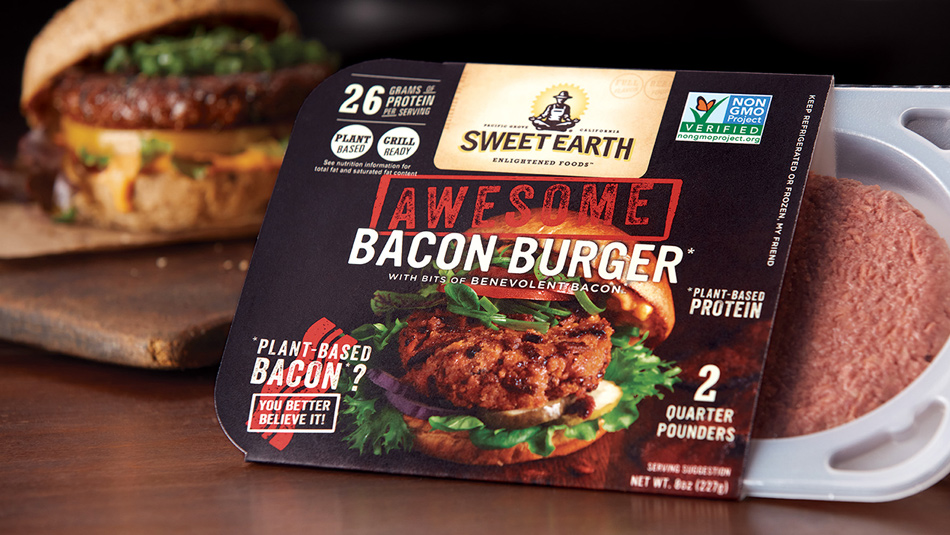
There is plenty of evidence that growth in the meat-alternative area has a long way to go. Impossible Foods is looking to double its R&D department and hire 100 scientists in the next year. Impossible CEO Pat Brown has stated that their goal is to “completely replace animals as a food technology by 2035.” To that end, they are focusing on converting meat-eaters, not targeting vegetarians. And they are raising money to accelerate the rapid expansion mode they are already in. South American based NotCo (Not Milk, Not Burger etc.) has also been raising funds, and plans to enter the US market any day now.
Beyond Meat has partnered with Five Star Gourmet to provide a crumble for their Taco Salad, which will expand into national distribution in January. International expansion is also underway. They are starting a production facility in Shanghai. And they have a direct-to-consumer online shopping website.
Kellogg’s MorningStar Farms also foresees growth in the category and is preparing for it with with a $43 million expansion of its Ohio production facility, and increased marketing support.
Nestle acquired Sweet Earth in 2017 and has been introducing new plant-based products at a furious pace, with 45 items so far. They also launched DiGiorno and Stouffer’s branded meatless options using the Sweet Earth plant-based ground beef product. Ryan Riddle, their R&D specialist in vegetarian meal solutions, says plant-based is “the future of food.”
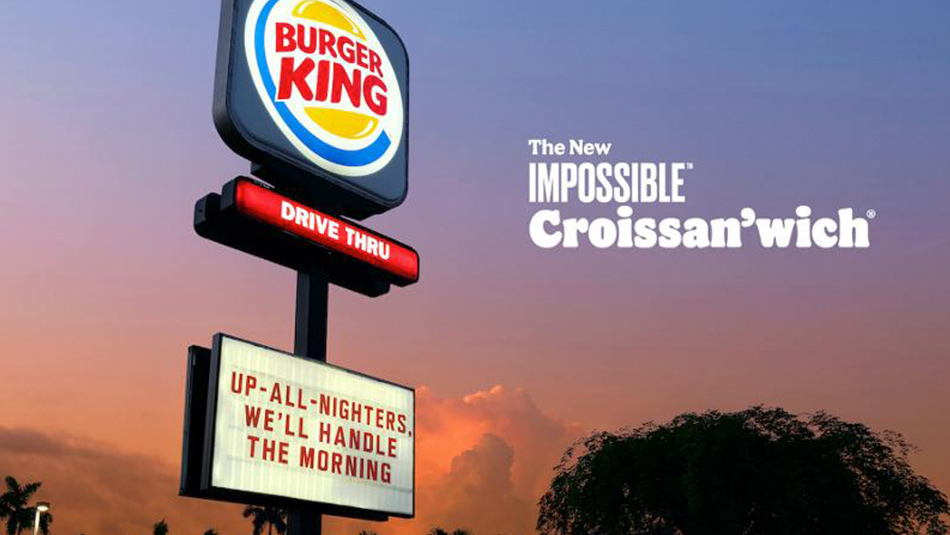
Retailers are getting into the game too. Kroger has added seventy-five plant-based items to its Simple Truth lineup, including plant-based Chick’n products containing wheat-based protein sold in the meat department. Burger King and Starbucks have introduced meat-alternative items to their menu. And none other than Taco Bell is highlighting the vegetarian items in their revamped menu.
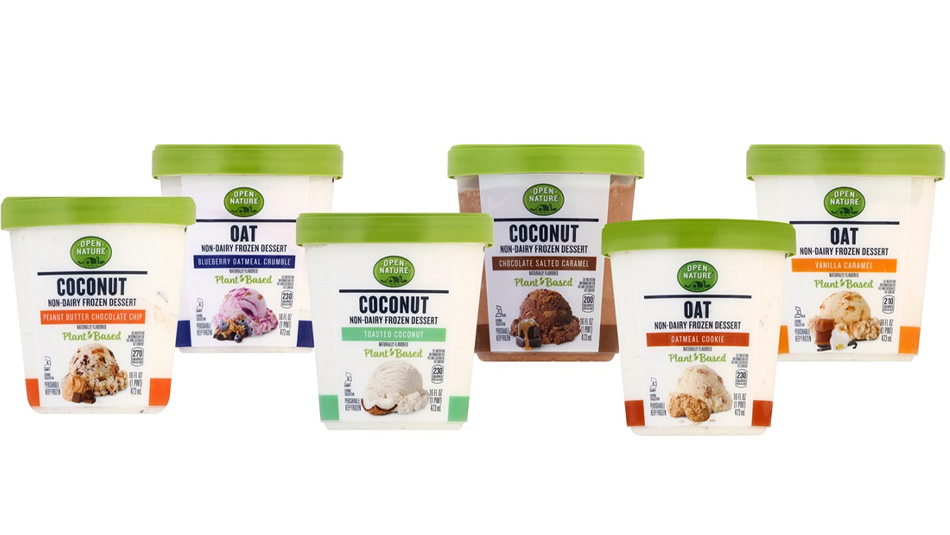 Dairy Alternatives could end up dominating the category
Dairy Alternatives could end up dominating the category
Plant-based dairy products are also in the news. Albertsons launched a line of non-dairy frozen desserts. In March Danone will launch a line of plant-based cheese items (shredded, sliced and spreads) under its So Delicious brand. And vegan ice cream company Coconut Bliss was just acquired by HumanCo. Eclipse Foods made a quick pivot from foodservice to DTC with their line of plant-based ice cream when the pandemic hit. The pandemic also accelerated the growth of plant-based milks, and their growth is predicted to continue until they dominate the category.
High-Tech Meat–From Lab To Plate?
There are developments underway that focus on sustainability and ways to create meat alternatives that dramatically reduce impact on the environment.
Two Israeli companies are working on cell-based meat production. Redefine Meat is working on 3-D printed steak. It may take a while to get to your local supermarket, but is going into testing in European restaurants this year. Meanwhile Meat-Tech has created meat tissue from stem cells, and is working on a chicken product through a subsidiary called Chick&Tech. Their plans are to make the products available to other companies, not to go direct to the consumer. Already traded on the Tel Aviv exchange, they have started the process of registering with the SEC for an IPO.
Funding for cell-based meat production companies is exploding. In the first quarter of 2020, $189 million was raised, double the amount for the entire year of 2019.
Cell-based seafood production is also being explored.
A Russian company is partnering with KFC to introduce cell-based chicken nuggets that are a hybrid of plant-based material and cell-based meat.
Another product in the research phase is a meat-substitute based on wood, which would be used instead of soy or pea protein.
Backlash Already?
A series of court cases has led to mixed results on product labeling. A case in Oklahoma went against Upton’s Naturals, requiring them to abide by a ruling that requires a ‘plant-based’ mention to be the same size as the product name. On the other hand, a decision went mostly in favor of Miyoko’s Kitchen, with the California judge allowing use of the terms ‘butter’, ‘lactose-free’ and ‘cruelty-free’, but not the claims of ‘hormone-free’ and ‘revolutionizing dairy with plants’.
Meanwhile, meat processors are turning to automation to assuage consumer concerns about contamination which rose to the surface during the pandemic. A long-term study from Oxford University released in November found that non-meat eaters had a higher incidence of bone fracture due to a lower intake of calcium. And some dietitians note that the amount of sodium and saturated fat in plant-based burgers is similar to burgers made of beef. Indeed, Beef Council communications emphasize the nutritional benefits of beef.
What Next?
Plant-forward eating is here to stay. Offsetting the Oxford research, a Stanford study has concluded that swapping some servings of meat for plant-based meat alternatives can lower cardiovascular risk factors. And 92% of consumers who tried a plant-based protein product during the pandemic say they will continue to buy them.
A virtual event sponsored by the Institute of Food Technologists in mid-July concluded that eating more plants and less animals is “the quickest way to make the food system more earth friendly.”
Is it too late to jump on the plant-forward bandwagon? No. But whether you are developing products or positioning existing products to capitalize on the trend, it is important to seek benefits that deliver on consumers’ underlying needs. For example, the plant-forward eating trend is a result of the fundamental desires I mentioned at the beginning: Consumers want to know where their food is sourced; they want it to have simpler, fewer ingredients; they want the production and distribution process to not harm the planet, and they want food that contributes to their health and well-being.
For an interesting read on the development of one such product, see this additional article written by Emily Nordee.

